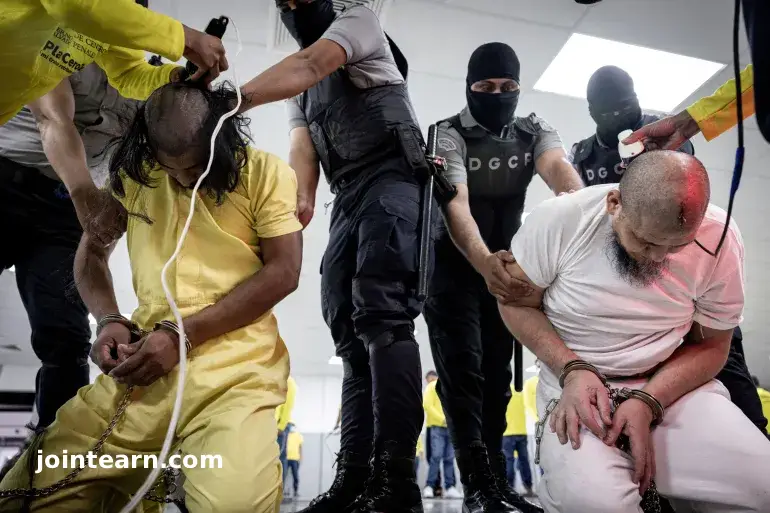
Spanish authorities have arrested 13 suspected members of Venezuela’s notorious Tren de Aragua criminal gang in a coordinated operation across five cities. The gang, infamous for its involvement in drug trafficking, human smuggling, and extortion, has increasingly drawn the attention of the United States, which has actively targeted its members in the Caribbean and Pacific Ocean.
Arrests Across Five Spanish Cities
Police confirmed that the raids took place in Barcelona, Madrid, Girona, A Coruña, and Valencia, focusing on the gang’s alleged efforts to expand operations into Spain. Venezuelans make up one of the country’s largest immigrant communities, making the gang’s presence a significant concern for law enforcement.
Authorities described Tren de Aragua as a transnational criminal network originally formed in Venezuelan prisons, now responsible for violence, organized crime, and trafficking across Latin America.
Seizures and Evidence
During the operation, Spanish police reported seizing synthetic drugs and cocaine, along with dismantling two laboratories used to produce “tusi”, a dangerous cocktail of cocaine, MDMA, and ketamine.
The arrests stemmed from an investigation that began last year after the brother of Nino Guerrero, the gang’s leader, was detained in Barcelona. Investigators have been monitoring the gang’s international activities and links to organized crime in Europe.
U.S. Focus on Tren de Aragua
The Tren de Aragua gang has also been a key target in U.S. domestic and international security operations. The gang was designated a global terrorist organization by the Trump administration earlier this year. More than 200 alleged members were deported from the U.S. in March, as part of Trump’s crackdown on criminal networks operating among Venezuelan expatriates.
Trump has cited Tren de Aragua as justification for military strikes on vessels in the Caribbean and Eastern Pacific, aimed at preventing drug smuggling. Since early September, at least 18 vessels, including 17 boats and one semi-submersible, have been targeted in U.S. operations, reportedly killing more than 60 individuals.
Controversy Over U.S. Strikes
The Trump administration has not publicly provided evidence that those killed aboard these vessels were smuggling drugs or posed a direct threat to the United States. The United Nations human rights chief, Volker Turk, condemned these operations as “extrajudicial killings” and urged the U.S. to halt attacks to prevent further loss of life.
U.S. lawmakers, including both Democrats and several senior Republicans, have demanded clarity on the legal justification for lethal actions in international waters.
Venezuelan Government Reaction
Venezuelan President Nicolas Maduro condemned the U.S. strikes, accusing Trump of attempting to destabilize Venezuela and use the “war on drugs” as a pretext for intervention. Maduro criticized the significant U.S. naval buildup near Venezuelan waters as part of a campaign to undermine his government, which Trump has accused of being involved in narcotics trafficking.
Implications for Spain and Europe
Spanish authorities view the arrests as a major step in combatting organized crime within Europe and preventing Venezuelan criminal networks from establishing footholds. The operation highlights the growing international reach of Latin American gangs and the need for coordinated law enforcement between countries.
Key Takeaways
- 13 suspected members of Tren de Aragua arrested across Spain.
- Raids conducted in Barcelona, Madrid, Girona, A Coruña, and Valencia.
- Gang involved in drug trafficking, human smuggling, and extortion.
- U.S. has labeled Tren de Aragua a global terrorist organization and targeted vessels in Caribbean and Pacific.
- Controversy surrounds U.S. military strikes, criticized as extrajudicial killings by UN officials.
- Venezuelan government accuses the U.S. of attempting to destabilize Maduro’s regime.


Leave a Reply